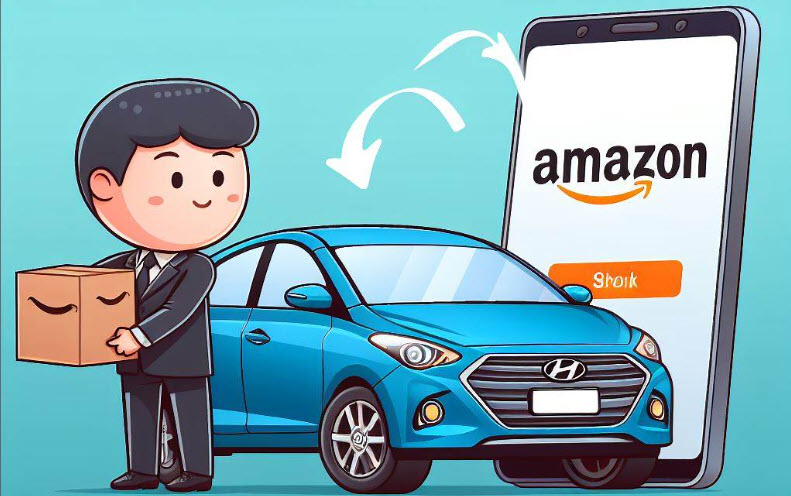In a significant expansion of its e-commerce empire, Amazon has announced its plan to facilitate the sale of cars through its platform, commencing with a partnership with Hyundai. This move marks a notable escalation in Amazon’s involvement in the automotive sector.
Amazon’s Gradual Entry into the Auto Industry
Amazon’s journey into the auto world has been progressive. Initially, the platform served as a digital showroom where customers could explore and compare various vehicle models. Additionally, Amazon became a go-to source for automotive parts and accessories. However, direct car sales on Amazon were not an option until now.
The New Era of Online Car Shopping on Amazon
Starting in 2024, Amazon is set to revolutionize the car-buying experience. Consumers will have the ability to purchase new cars online and then choose between picking them up at a local dealership or having them delivered. This process will be integrated into Amazon’s familiar and user-friendly interface, allowing customers to search for cars in their region, select their preference, and complete the purchase using their chosen payment and financing options. This initiative is aimed at enhancing the visibility of dealers’ inventories while offering unmatched convenience to buyers.
Hyundai and Amazon’s Groundbreaking Collaboration
Amazon’s CEO, Andy Jassy, highlights the partnership with Hyundai as a transformative step in simplifying online car purchases. Furthermore, Hyundai is set to integrate Amazon’s Alexa voice assistant into its vehicles starting in 2025, indicating a deeper technological collaboration.
Market Reaction to Amazon’s Announcement
The announcement impacted the stock market, notably affecting shares of established car dealerships like Carmax, Carvana, Lithia Motors, and AutoNation. These companies saw their shares drop by approximately 5% to 6% following Amazon’s revelation. This response underscores the potential disruptive impact of Amazon’s entry into car sales.
The Dealer’s Role in Amazon’s Model
In Amazon’s model, the final sale is still completed through the dealer. This arrangement is crucial due to the intricate and legally protected relationships between traditional automakers like Hyundai and their dealers. In many states, regulations strongly favor franchise dealers, making it challenging for automakers to sell new cars directly to consumers.
The Evolving Landscape of Direct Online Sales
The approach taken by Amazon contrasts with the strategies of companies like Tesla and Rivian. These electric vehicle pioneers have navigated around restrictive state laws to sell directly to consumers, sometimes resorting to legal challenges or leveraging more lenient laws in certain states. The landscape for used car sales is less regulated, which has enabled companies like Carvana to sell pre-owned vehicles directly to consumers online.
Additional Insights for Consumers
For potential buyers, this development with Amazon and Hyundai represents a significant shift in how cars are purchased. It’s essential for consumers to understand that while the browsing and selection process is moving online, the actual purchase and delivery still involve traditional dealers. This hybrid model combines the convenience of online shopping with the reliability and service of established dealerships.
As this new era in car buying unfolds, it will be interesting to observe how Amazon’s presence influences consumer behavior, dealership operations, and the overall automotive industry.






